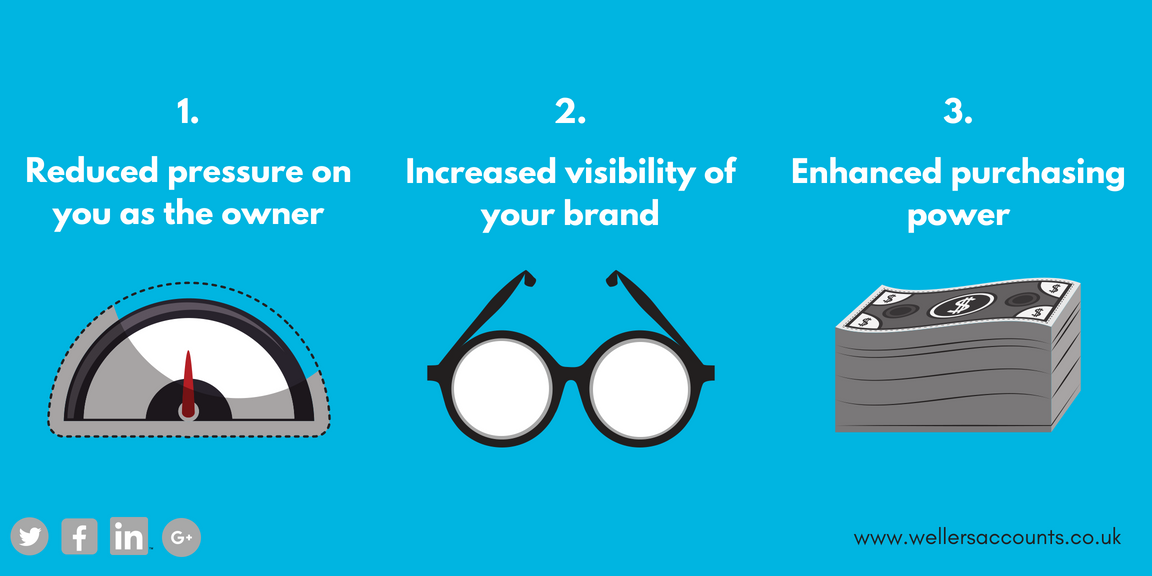
Franchising is a way to expand your business and your brand in a cost-effective way at minimal risk. It's an attractive option for many business owners looking to grow because it saves you money, time and resources while gaining additional revenue opportunities.
Licensing fees, profit percentages and annual fees are all ways in which you can grow through franchise opportunities.
A franchise is an agreement where a franchisee (third party) agrees to pay a fee to the franchisor (the business owner) for the right to use the business brand, systems and processes, and intellectual property. This includes strict requirements ensuring the reputation of the franchisor is upheld by the franchisee.
Like any business structure there are bound to be some issues with franchising, but the rewards can outweigh the risks and it could provide you with an additional revenue source. You'll be less likely to need to take out a loan to finance your organisation’s growth, thereby potentially reducing your liabilities.
Think about the big name brands that have become highly successful through franchising; McDonalds and Coco-Cola have franchised their businesses and enjoyed significant returns. Smaller organisations are stepping into the franchise game as well, in many instances smaller business realise this route is easier than having to open new locations themselves.
Franchisees are often very motivated, but most importantly they are familiar with the area and are able to tailor their current services to meet the needs of their new customer base.

If your organisation offers a product or service that has a wide appeal and can be marketed in different locations, franchising may be the way forward to expand.
Let's start this list off by saying YES there are some really great aspects to franchising BUT as with any business endeavour there are downsides. When you think about franchising how many of you automatically think of McDonalds? A world dominating fast food chain that just keeps on growing, and you're right this is a successful franchising example but it's also a cautionary tale for entrepreneurs who are worried about going from founder to forgotten.
Ray Kroc gets all the credit for being the man who came up with the McDonald's chain, but it was actually the McDonald brothers who not only had the idea but started the first McDonalds. When they decided to sell the business to Kroc, a franchisee at the time, for their $2.7 million price tag they didn't think their names would be removed from the title of founders.
Be clear in your intentions when it comes to franchising. Are you purely interested in the franchising model long term or will you be looking to sell eventually? If selling your business is a possibility think about this ahead of time and outline what your expectations will be, at the end of the day you'll likely want credit for your ideas and some legacy.
It is vital to ensure that the business process itself is a fit for the model and you do not run the risk of losing control, its identity and eventually the reputation you have worked so hard to build over many years.
A value proposition will let prospective franchisees know why your product is unique and most importantly why they should invest. Think about why your product is more valuable than that offered by your competitors? Also consider, what is the need for it in the niche market you are targeting? Other things to think about are price, quality, and service.

Your business plan should analyse how you achieved success in your specified market and who your competitors are. As the business owner, you will need to provide the franchisees with your goals for the business, information on how to set up the business, how to order supplies and maintain the books.
Your plan will need include where the business is currently and how it is likely to progress in the future. A thorough plan of action will help ensure the business is set up properly and has the infrastructure to service customers quickly.
While there are no specific laws regulating franchise agreements in the UK, it is important to have a contract that both parties must abide by. This is particularly the case if you're setting up a franchise outside of the UK where there are different company laws to adhere to.
Your business plan will be a great starting point in providing initial guidance for the franchise. There will be a balance between giving franchisees some freedom when it comes to exploring new business ideas and modifying current services to fit customer need.
That said, you must make it clear exactly how much franchisees are responsible for and they should know how much of their gross revenue to spend on things like advertising. This will ensure you're not having to spend your resources on behalf of the franchisees and that the entire business can benefit.
Training is an important part of any business, when we hire employees we want to make sure they are trained to the highest standard to provide the best customer experience. Training your franchisees is the same. Consistency across all locations is imperative to keeping your brand authentic and it can be a make or break factor for this growth model.
In fact, an individual may choose to become a franchisee because of your training program. Why would they be more likely to choose you? It's quite simple, with proper training in place it's more likely that certain protocols and procedures will be addressed to prevent serious problems.
Franchisees will know what the expectations are and that there is support in place to insure the best training possible. You can decide who from your branch will conduct the training, and what the other franchises should know about your business and how to run it, thereby optimising resources and potentially maximising profits.
The content of this post is up to date and relevant as at 02/08/2019.
Please be aware that information provided by this blog is subject to regular legal and regulatory change. We recommend that you do not take any information held within our website or guides (eBooks) as a definitive guide to the law on the relevant matter being discussed. We suggest your course of action should be to seek legal or professional advice where necessary rather than relying on the content supplied by the author(s) of this blog.
Click below for office location details
leave a comment -